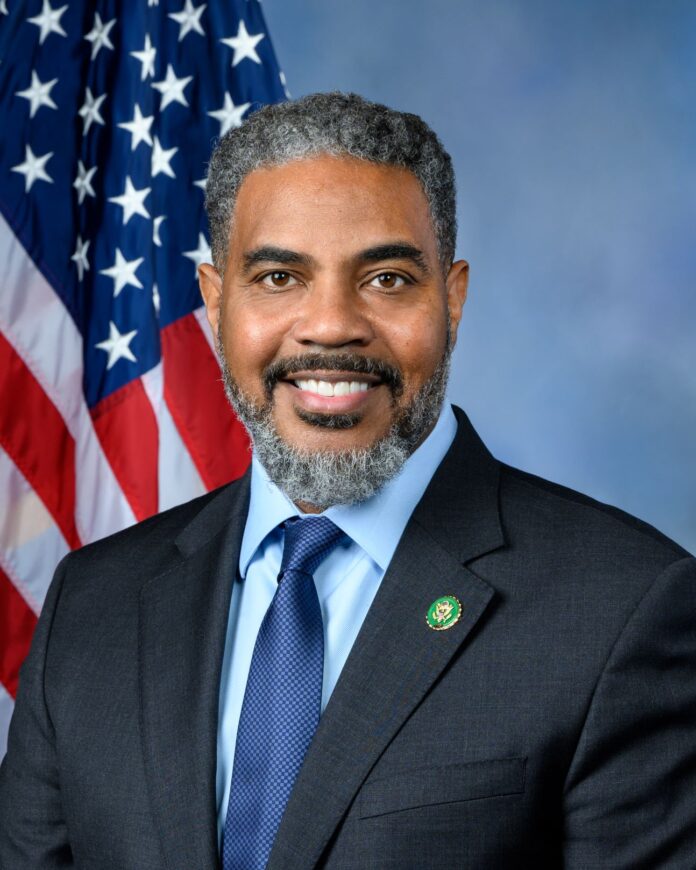In the 117th Congress, a Democratic Senator from Michigan introduced legislation that would require the FCC to take certain actions to increase diversity of ownership in the broadcasting industry and establish related tax incentives.
The Senate bill did not attract an abundance of co-sponsors; companion legislation in the House of Representatives lacked Member magnetism, too.
Now, the 118th Congress is trying again with support of a Congressman whose district includes the northern portion of Las Vegas.
Rep. Steven Horsford (D-Nev.) on Thursday introduced the “Broadcast Varied Ownership Incentives for Community Expanded Service (VOICES) Act,” legislation he believes will increase diversity among owners in the broadcasting industry “by restoring mechanisms that encourage investment in broadcast stations owned by minorities and women.”
It will be introduced in the Senate by Gary Peters (D-Mich.), who unsuccessfully brought similarly named legislation to light in the prior Congress.
“It’s essential that our media landscape reflects the diversity of the communities they serve,” Horsford said. “The Broadcast VOICES Act will re-open doors that have been shut for too long, giving more women and people of color in Nevada and around the country the chance to lead. I’m proud of our work to empower underrepresented voices to tell their own stories and shape our local and national discourse.”
If passed, the new legislation would do what the prior act could not — reinstate the Minority Tax Certificate Program, which advocates say significantly contributed to increasing minority ownership in broadcast media from 1978 to 1995. The program enabled the issuance of 287 radio and 40 television station certificates, increasing minority and women-owned station ownership by over 550%, Horsford pointed out. “Despite its success, the program was repealed in 1995,” he said. “As of 2021, less than 6% of commercial broadcast television stations were owned by women and less than 4% are minority-owned.”
The act would change this by having the FCC once again issue minority tax certificates to facilitate sales of broadcast stations to socially disadvantaged individuals. It would also mandate annual FCC reports to Congress to recommend ways to further enhance ownership diversity. Additionally, the proposed legislation introduces a new tax credit for current broadcast owners who donate their stations to train individuals new to managing and operating broadcast stations. “This credit aims to rectify past imbalances and ensure continued support and growth for the next generation of the media profession,” Horsford said.
The Broadcast VOICES Act is supported by the National Urban League, the NAB, the National Association of Black Owned Broadcasters (NABOB), the Asian Americans Advancing Justice (AAJC), the Hispanic Federation, the League of United Latin American Citizens, and the Multicultural Media Telecom & Internet Council (MMTC).
“Reinstating the diversity tax certificate program is a meaningful step to level the playing field and amplify underrepresented voices in media,” said NAB President/CEO Curtis LeGeyt, whose organization just wrapped up its annual convention and expo at the Las Vegas Convention Center, which is mere blocks south of Horsford’s district line. “The NAB has long been committed to access to capital initiatives that expand radio and television station ownership opportunities, particularly for women and people of color. A tax incentive program is a proven solution that significantly diversified the ranks of broadcast owners over its nearly two decades of existence. Broadcasters thank Sen. Peters and Rep. Horsford for introducing legislation that would reinstate the program and we urge swift passage of this important bill.”
Peters commented, “Broadcasters play an essential role in connecting our communities and elevating the unique perspectives of Americans throughout our country. It’s important that we have a broad range of voices and leaders in the industry. I’m proud to again lead this bill to encourage more investment in minority-owned stations and boost diversity in American television and radio.”





